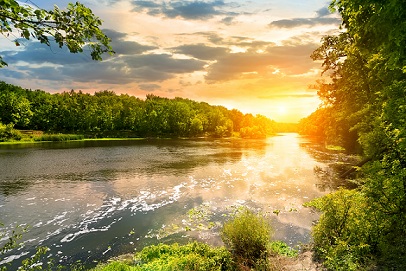New research to make our water systems cleaner and safer

Related topics
Agriculture & Forestry Environment & climate action Austria Belgium Denmark Estonia Finland France Germany Ireland Italy Netherlands Poland Portugal Spain Environment Climate action, environment, resource efficiency and raw materials Norwaydate: 24/01/2014
Project: Water bodies in Europe: integrative syst...
acronym: WISER
See also: Info-centre
Contact: http://www.wiser.eu/
Ever since men first learned to use water for farming, they changed nature. Today, our impact on water systems is vast: we exploit rivers, lakes and coastlines with agriculture, industry, transport, power generation, waste disposal, landscaping and much more. We can see the effects, from the leached pollutants to the eroded riverbanks. But how can we measure the damage, and how can we learn the lessons of our collision with water?
A European Union (EU) research project has been examining the issue, providing revealing insights into the force of human intervention on water systems. The three-year project, named WISER, has developed ecological indicators to assess and monitor lakes, rivers and coastal areas. The research could help reverse some of the worst wounds to Europe’s aquatic environment, and rebuild a more sustainable relationship between man and water.
“The idea was to see how ecosystems react to stress. We wanted to observe the natural processes at work as they recover from human impact,” says WISER’s project coordinator Daniel Hering, a hydrobiology professor at the University of Duisburg-Essen, in Germany. “So, we developed methods to judge the quality of ecosystems. And from there, we can develop common environmental standards, and create a toolbox to help restore eco-systems.”
Backed by a €7 million EU grant, WISER gathered 25 European research organisations from 16 countries with expertise in biological assessment, modelling and restoration of freshwater and coastal ecosystems.
The project, which ended in March 2012, looked at issues like how to measure the stress on marine areas, lakes and rivers, and what restoration and management options are available to mitigate human impact. WISER analysed records from 90 different databases covering all water categories, and performed new field exercises. It looked at the changes on nutrients in the water, and the effects of water creatures like phytoplankton and fish. And it collated a list of cost-effective management practices and recovery measures for degraded waters.
WISER’s conclusion, which is much in line with results of European environment agencies, is that most European water areas are degraded, and that some time is required to recover. “It is often assumed that once a restoration measure is completed, the organism responds immediately. But often it takes years and years,” Hering says. “Our rule of thumb is that it usually takes about 10-20 years for an ecosystem to respond to human intervention.”
Hering says that the problems vary across Europe. Many parts of northern Europe, still suffer the effects of acid rain from decades ago, but have now almost recovered. In central Europe, the competition for space has led to the cutting down of trees near rivers, and intense agriculture nearby. In southern Europe, problems are often linked to water shortages, an issue that is accelerating due to climate change.
The toolbox offers many ideas to deal with the problem. One is to build buffer strips alongside rivers, which can help ensure pesticides and other pollutants from agriculture do not leach into the water. These buffers, just by a few meters of grassland and trees, can also protect the riverbank against erosion.
Although WISER has revealed the profound effects of mankind on ecosystems, Hering is confident the research will help policymakers manage water resources more sustainably. “WISER has laid the foundations to make our water systems cleaner, safer and more sustainable,” Hering says. “I hope it will lead to new rules in this area.”
World Water Day - 22 March 2014
